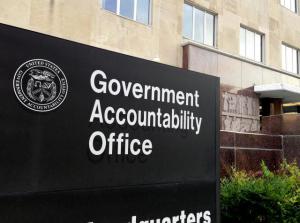

In 2016, the Government Accountability Office came down on the side of companies challenging federal procurement decisions more often than in any year in almost a...
In 2016, the Government Accountability Office came down on the side of companies challenging federal procurement decisions more often than in any year in almost a decade, according to data the office sent to Congress Thursday afternoon.
In its role as the government’s independent arbiter over bid protests, GAO sided against federal agencies’ initial awarding of contracts and task orders in nearly 23 percent of the cases it decided. The figure was up sharply from 2015, when GAO’s procurement arbiters sustained just 12 percent of protests. It was also the highest rate of sustained protests since 2007, when the office agreed with protesting vendors in 27 percent of that year’s cases.
The raw number of protests GAO sustained was also up significantly over the past year: It upheld 139 complaints out of a total of 616 cases it decided in 2016, the most sustained cases in any year since 2001, when the office’s annual reports began including tallies of the data. That compares to just 68 sustained cases out of 587 GAO decided in 2015. The number of sustained cases has only reached triple digits in one other year: 106 in 2012.
The total number of protests losing bidders lodged with GAO also increased slightly to 2,789, up 6 percent from the year before. But many cases are either dismissed or withdrawn by the protestors before GAO ever reaches a decision on the legal merits.
And many others never arrive at the decision stage because “agencies voluntarily take corrective action in response to the protest rather than defend the protest on the merits,” Susan Poling, GAO’s general counsel, wrote in the report. “Agencies need not, and do not, report any of the myriad reasons they decide to take voluntary corrective action.”
The report did not offer any insight into possible reasons for the notable uptick in sustained protests, but said the most common reasons GAO ruled in protestors’ favor in 2016 were that agencies reached unreasonable conclusions about bidders’ technical capabilities, past performance or cost and price, or used “flawed” selection criteria: in one case GAO cited as an example, the Department of Transportation awarded a professional services contract based on an opaque system of “points” without considering the substance of competing companies’ proposals.
The annual report to Congress also notes that federal agencies complied with all the recommendations GAO made in connection with bid protests during 2016, the first time that’s happened in at least five years. Recent years’ reports have included at least one instance in which agencies stood their ground on an initial award and ignored GAO’s protest decisions.
Copyright © 2025 Federal News Network. All rights reserved. This website is not intended for users located within the European Economic Area.
Jared Serbu is deputy editor of Federal News Network and reports on the Defense Department’s contracting, legislative, workforce and IT issues.
Follow @jserbuWFED


